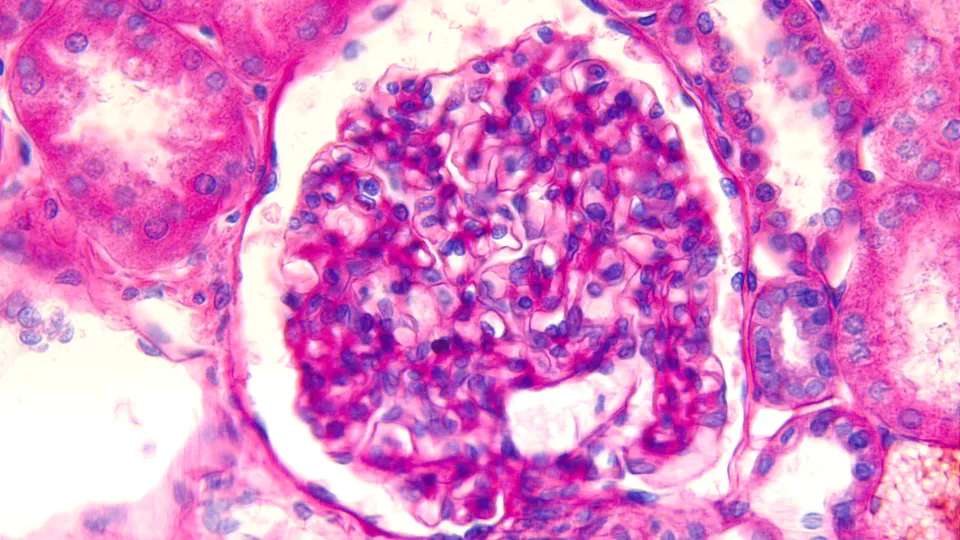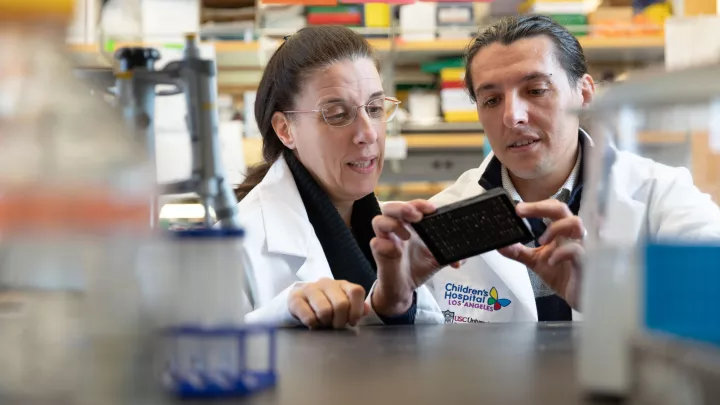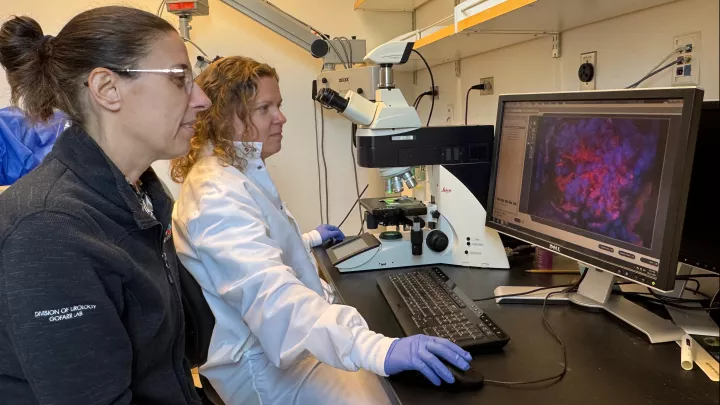
CHLA Researchers Identify Networks Implicated in the Progression of Different Chronic Kidney Diseases
Different chronic kidney diseases can lead to the same result: kidney failure. Symptoms such as scarring of the glomerulus (the filtration unit of the kidney) and loss of podocytes (the specialized cells that maintain the kidney’s filtration barrier) may result in irreversible damage.
To better understand the mechanisms driving chronic childhood kidney disease, researchers from the GOFARR Laboratory for Organ Regenerative Research and Cell Therapeutics in Urology at The Saban Research Institute of Children’s Hospital Los Angeles led a pilot study examining the process of kidney cell deterioration on a molecular level. They used digital spatial profiling—an advanced technique that maps patterns of gene expression—to identify cells in which changes in genes occur during kidney disease progression. The researchers assessed these changes in 73 kidney glomeruli. Tissue samples from 10 patients affected by three different glomerular diseases—Alport syndrome, focal segmental glomerulosclerosis or membranous nephropathy—were compared with glomeruli from healthy kidney tissue.

“Digital spatial profiling at the level of single glomerulus cells offers powerful insights into kidney disease that other gene profiling techniques just can’t match,” says Laura Perin, PhD, Vice Chair of Research in the Department of Surgery at Children’s Hospital Los Angeles and study senior co-author.
The researchers found that glomeruli that looked histologically similar revealed patterns of gene expression distinctive to each disease as kidney function deteriorated—pointing the way to potential biomarkers. In addition, they also found common gene patterns driving progression of different kidney diseases.
“Further studies of these genes and associated molecular pathways are needed to determine how they contribute to chronic kidney disease progression, and whether some of these genes may be useful as targets for therapeutic intervention,” says Sargis Sedrakyan, PhD, study senior co-author.
The GOFARR lab’s findings were published in the journal JCI Insight.


